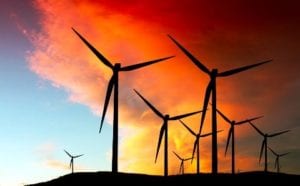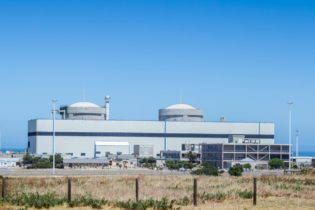Enel Green Power RSA, the Enel Group’s South African renewables company, has signed financing all financing agreements for five new wind farms with Nedbank Limited and Absa.
The total investment in the five wind farms amounts to approximately 1.2 billion euros, with the Enel Group contributing around 230 million euros in equity. Following the signing of the agreements construction of the first project, Nxuba, is expected to start by the end of 2018. The five facilities, namely Nxuba, Oyster Bay, Garob, Karusa and Soetwater, have a capacity of around 140 MW each. Antonio Cammisecra, Head of Enel’s Global Renewable Energies Division Enel Green Power, says they have reached an important milestone in South Africa by achieving financial close on five major wind projects which confirm the company’s continuing commitment to the country’s renewables sector, within a context of sustainable development. “Enel Green Power will be supporting these processes by generating its emission-free energy in partnership with local shareholders and in cooperation with the local communities, according to our long-term vision of shared value creation.”The projects
The Garob, Karusa and Soetwater projects will be constructed in the Northern Cape province, while the Oyster Bay and the Nxuba wind farms will be built in the Eastern Cape province. The five wind farms were all awarded in round 4 of the South African government’s Renewable Energy Independent Power Producer Procurement Programme (REIPPPP). Each project is minority-owned by a local partner.Following the start of construction of Nxuba, construction of Oyster Bay and Garob is expected to start by the first half of 2019 and construction of Soetwater as well as Karusa is expected to start in the second half of the same year.
Nxuba is expected to be operational in the second half of 2020, Oyster Bay in the first half of 2021, while Garob, Soetwater and Karusa in the second half of 2021. By 2021, all five new wind farms are due to be up-and-running, bringing Enel Green Power’s total installed capacity in the country to more than 1.2 GW. Once operational, the five projects are expected to produce around 2.6 TWh each year, saving the annual emission of roughly 2.7 million tonnes of CO2 into the atmosphere.







